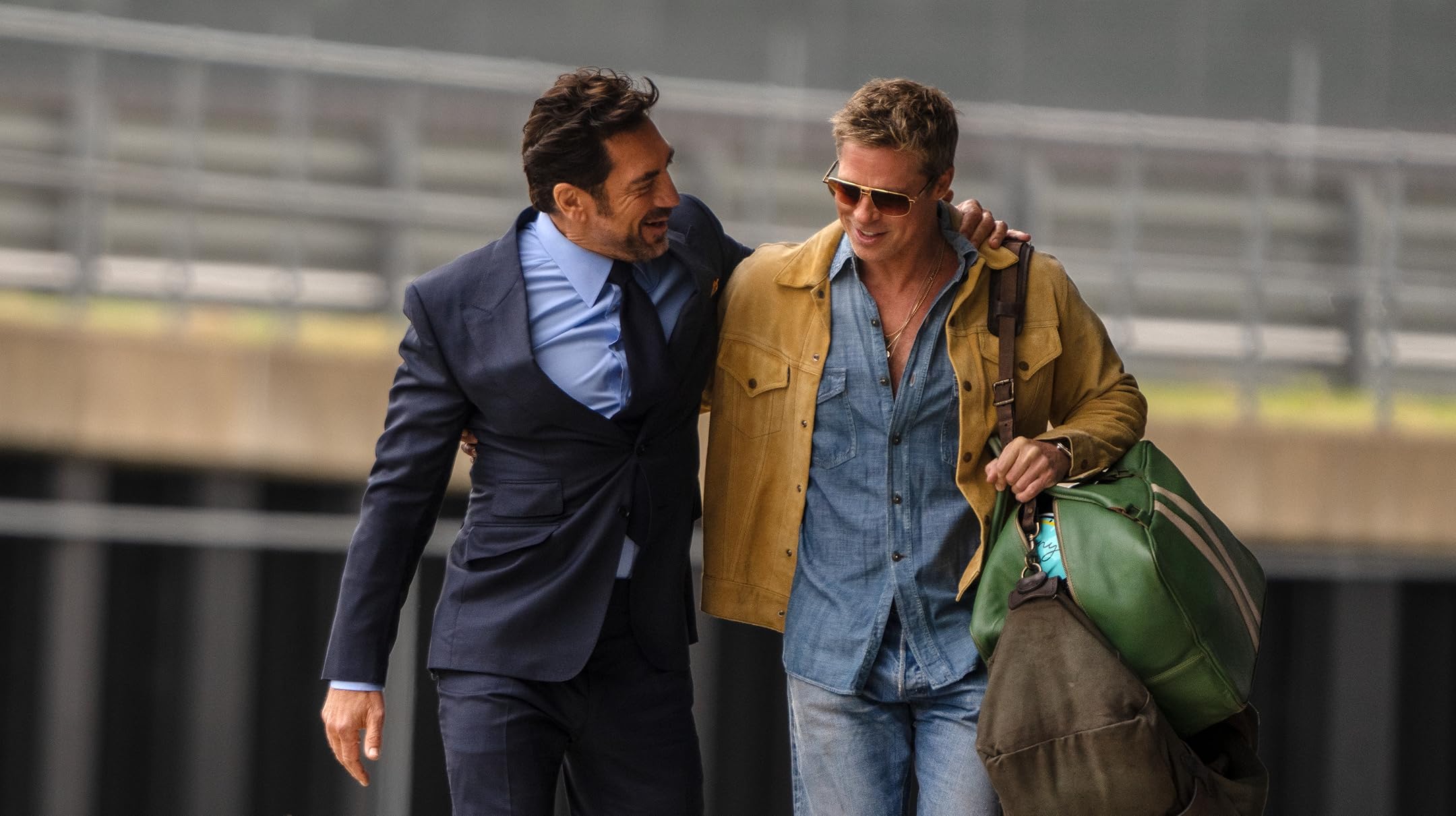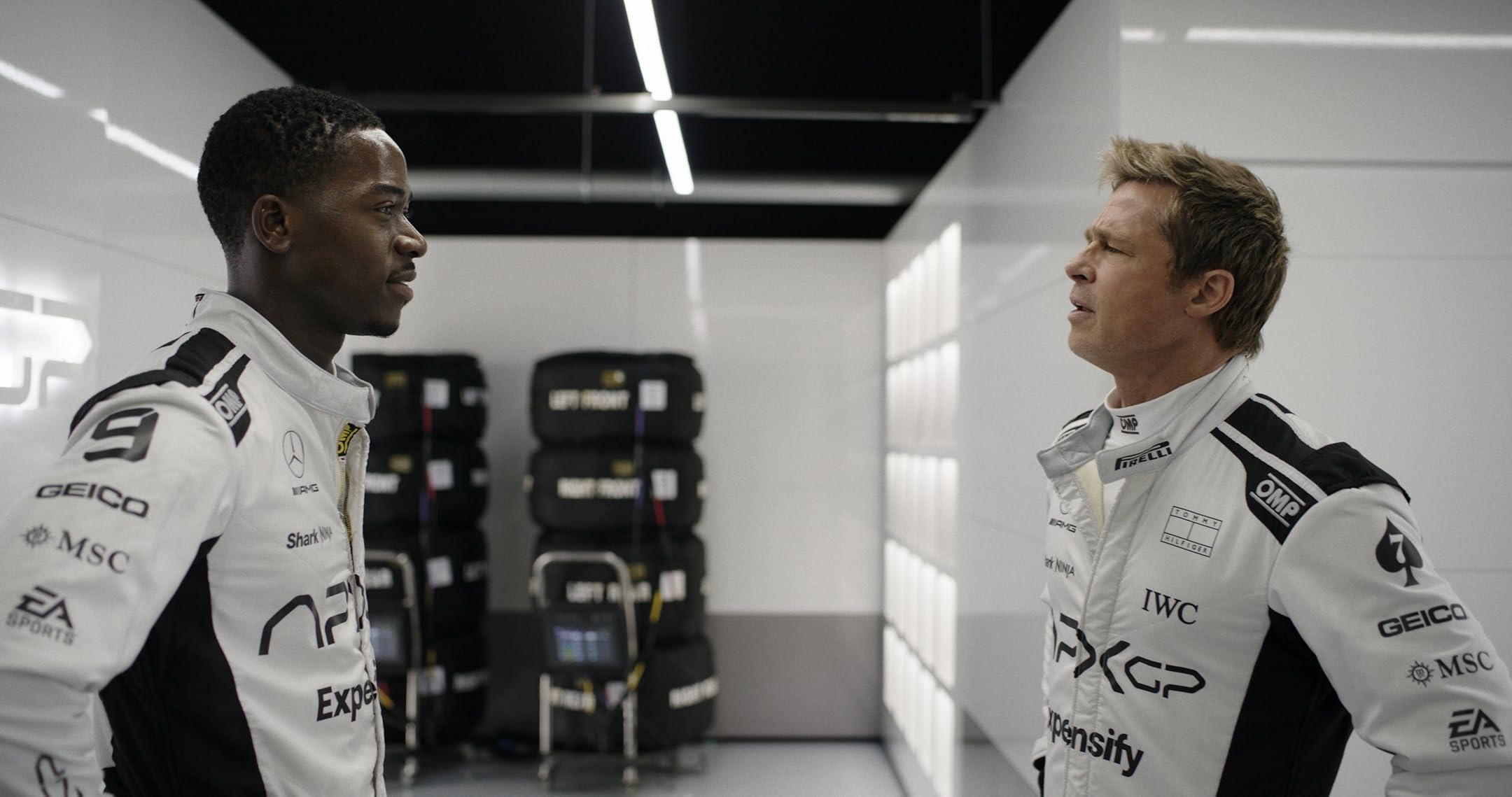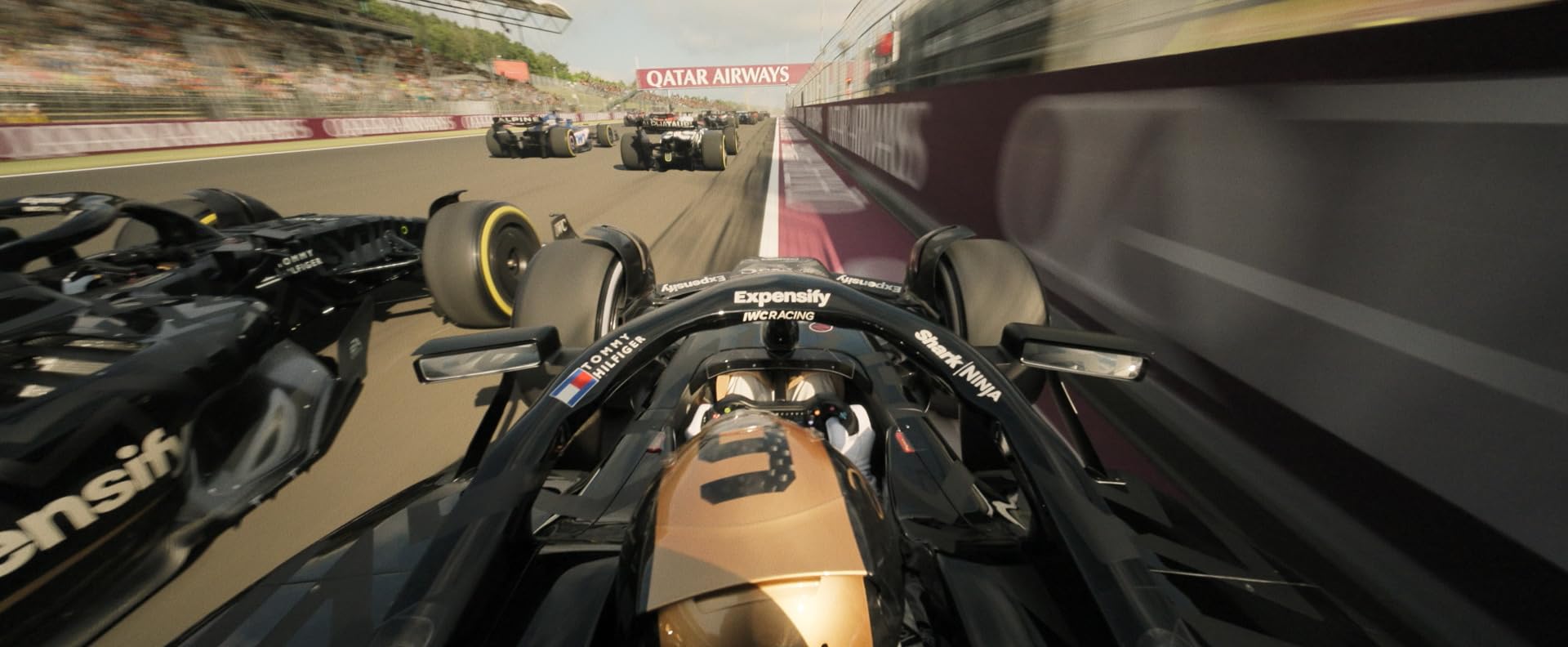If you’ve been glued to every F1 race weekend over the past year, you’ve likely noticed the presence of a large camera crew in the paddock for a F1 movie. And Brad Pitt, helmet on, playing racing driver. It was all part of the build-up to F1: The Movie, the latest Hollywood attempt to merge star power with motorsport credibility.
We attended the preview screening. Here’s our (almost) spoiler-free review.
A roaring start for endurance fans, at least
The film opens with a visceral, thunderous bang: a full IMAX onboard sequence of a Porsche 911 LMGT3 tackling the Daytona 24 Hours. For fans of endurance racing like me, it’s a rare treat. The same car participated in the real 2025 24 Hours of Le Mans under Manthey Racing cover. The cinematography is tightly focused on the racing line, the soundscape raw and unfiltered. It’s arguably the highlight of the film, in my humble opinion, delivering an immersive experience that feels closer to the cockpit than anything short of actually driving the car.
At this point, I was smiling. This was why I came.
Brad Pitt plays the archetype
The story revolves around Sonny Hayes, played by Brad Pitt, a former prodigy whose F1 career was cut short after a crash while overtaking none other than Ayrton Senna. Cue the comeback arc: older, wandering the American racing scene, Sonny wins the Daytona 24h and is offered a second chance in F1 (30 years after his crash) by his former teammate, now turned team owner (Javier Bardem as Ruben Cervantes). One goal: win a Grand Prix before the season ends.

Yes, it’s as familiar as it sounds.
Sonny Hayes is every bit the archetype: broken hero, charming loner, fast hands, even faster smile. A Steve McQueen caricature in an F1 movie. We’re not in the ’80s anymore, yet somehow Hollywood still is.
A grid of clichés, saved by strong performances
The supporting cast does elevate the narrative structure by delivering impressively. Damson Idris portrays Joshua Pearce, the brash rookie teammate, leaning heavily into the archetype of youthful arrogance with limited nuance.
Kerry Condon takes on the role of Kate, the team’s technical director. She’s portrayed as a one-woman pit wall: designing the car, making strategic calls, and managing both drivers singlehandedly. It’s a role so exaggerated that one wonders how co-producers like Toto Wolff, Lewis Hamilton, or Stefano Domenicali didn’t step in to flag how far removed it is from reality in a modern Formula 1 team. The script doesn’t help her character much, yet Kerry Condon brings conviction and gravitas. Javier Bardem, as always, is magnetic on screen, and Brad Pitt handles his role with the confidence and charisma expected of him.

As far-fetched as the roles may be, the acting is thoroughly convincing across the board. There’s not a weak link in the main cast, which keeps the film engaging despite the shortcomings of its writing.
Then comes the obligatory attempt at social progressiveness: a black driver, a female head of engineering, all in the same team. Important representation? Absolutely. But the execution is awkwardly self-aware. It feels less like sincere inclusion, and more like a corporate checklist. This is why it feels… clumsy.
To top it off, the inevitable romance between Pitt’s character and the technical director unfolds with all the subtlety of a DRS. Did we really need that subplot in a F1 movie? This isn’t Notting Hill in Monaco…
F1 Movie is technically stunning, narratively predictable
If the plot feels like a retread (think Cars meets Days of Thunder with an A Star Is Born lens) then the technical execution at least makes up for it. The racing footage is astonishing. High-speed sequences blend real-world F1 cars with clever practical and digital effects, and the sound design is a masterclass. Tires scream, gear shifts punch through your seat, and curbs rattle underfoot.

There’s a sense of pace and danger that many racing films before have lacked. In those moments, F1: The Movie delivers.
Final thoughts
F1: The Movie is caught in a paradox. It wants to show the modernity of motorsport: diverse drivers, electrifying technology, complex strategies, but it relies on narrative tools from a bygone era. And that’s a shame.
Because when it comes to technique and acting, the film excels. The cinematography is breathtaking, the racing sequences are immersive, and the cast is genuinely excellent. The only real obstacle on this lap is the script.
F1: The Movie is not a perfect movie, but it’s a thrilling spectacle. And for fans of the sport, it’s definitely worth the watch.


